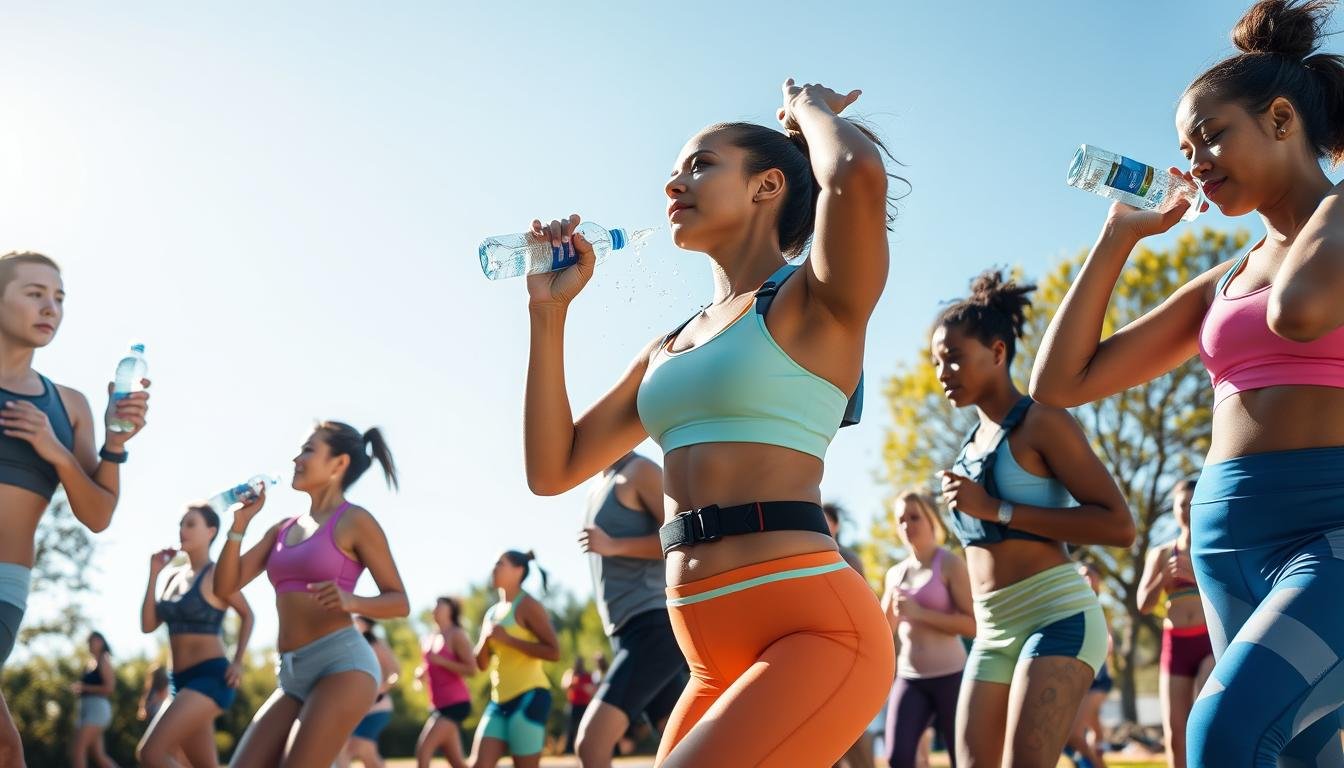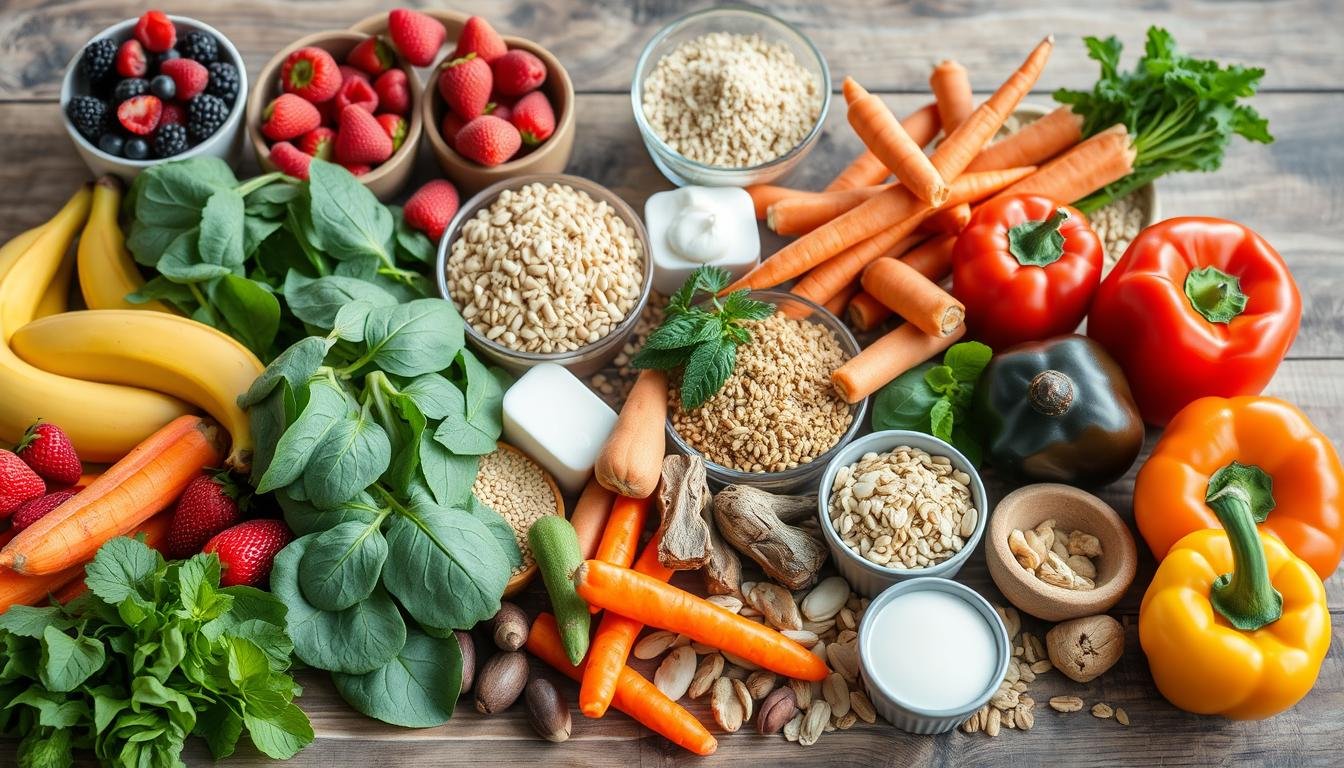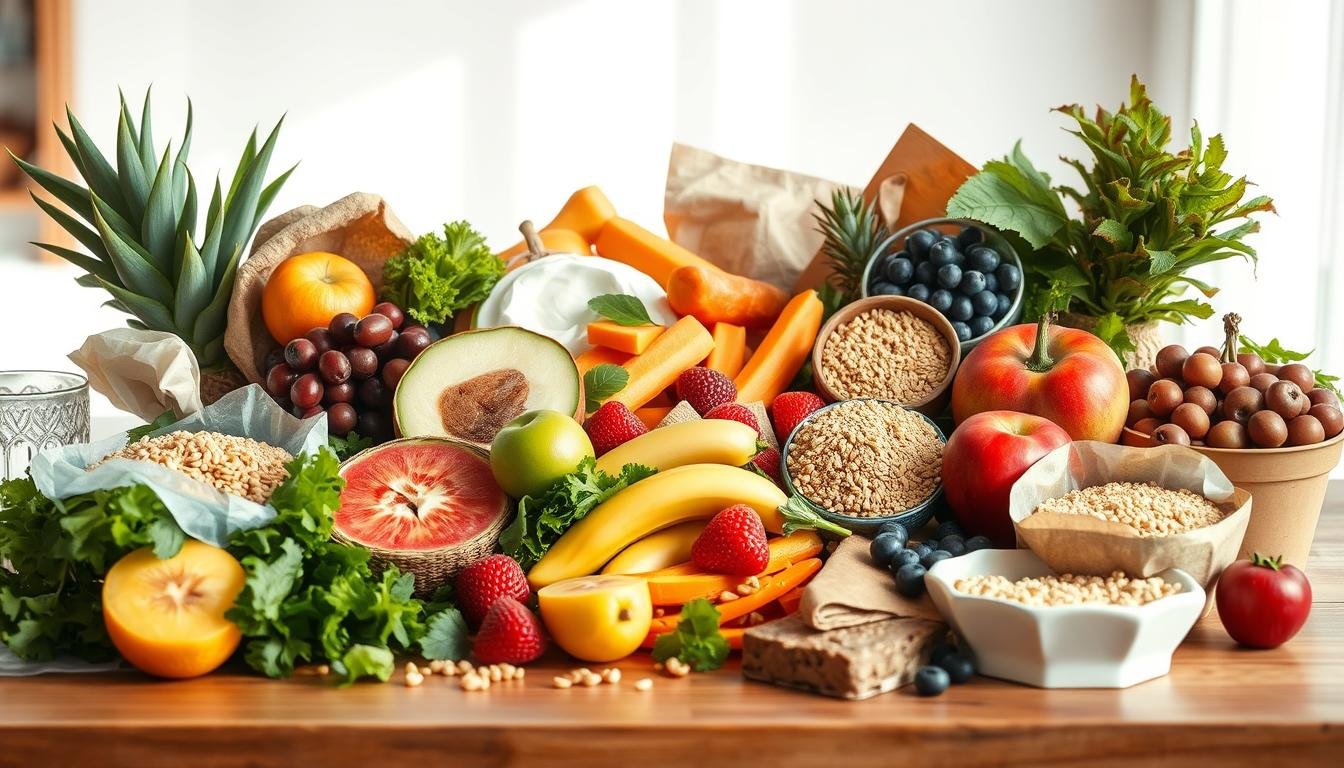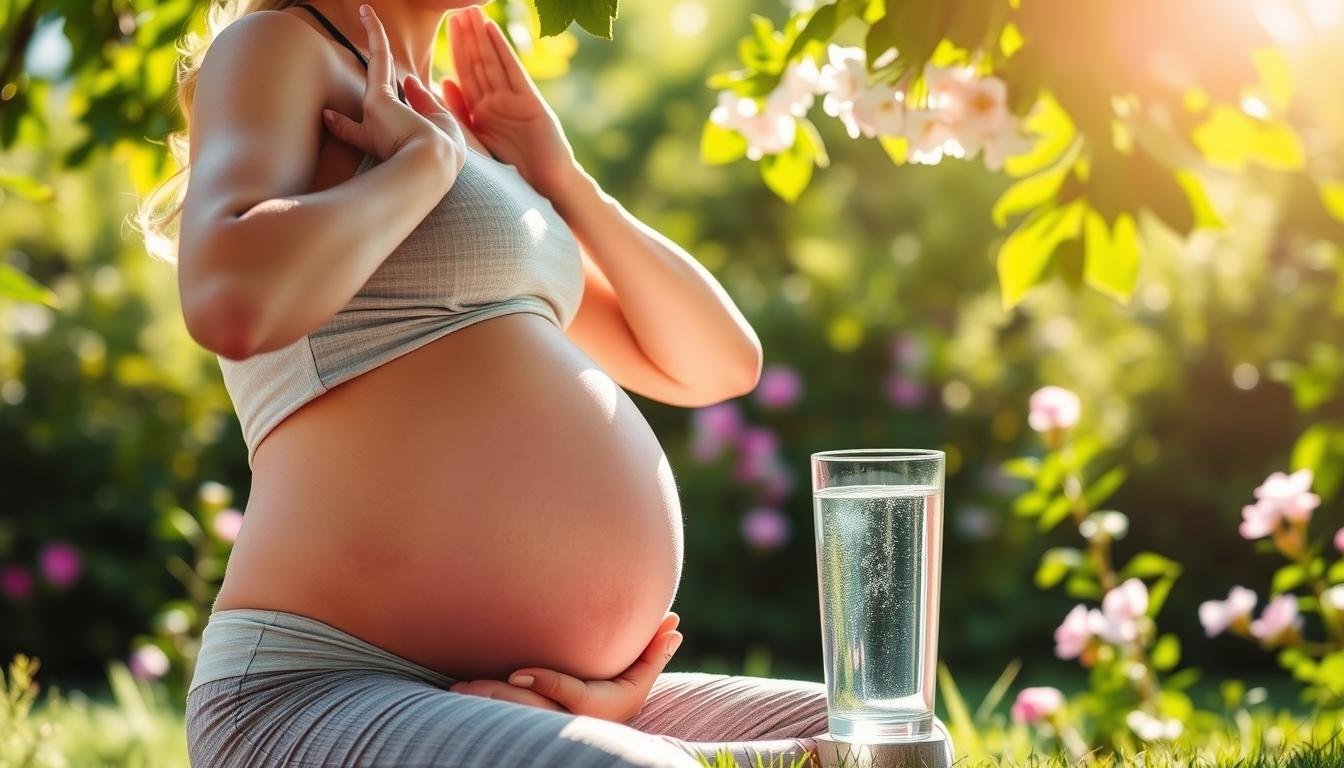Drinking enough water is key for your health and how well you perform in sports. Losing just a little water can make a big difference. Your body is mostly water, and you lose some when you sweat and breathe out moisture.
Not having enough water makes your blood thicker. This means your muscles get less oxygen. Water also helps your joints move smoothly, gets rid of toxins, and keeps your body cool.
Staying hydrated is important. It helps keep your body balanced, moves nutrients and oxygen, controls blood pressure, and gives energy to your cells.
The Importance of Hydration for Athletes
Why Proper Hydration is Crucial for Performance
For athletes, staying hydrated is key to peak performance. Losing just 2% of body weight due to dehydration can hurt endurance sports like cycling or running. It also affects anaerobic activities, such as weightlifting and HIIT workouts.
Dehydration can cause serious health problems. These include heat injury, kidney issues, seizures, and a drop in blood pressure and oxygen levels. It’s vital to keep fluids balanced to transport nutrients and oxygen, regulate blood, and protect tissues and joints.
| Hydration Impact on Performance | Hydration and Muscle Recovery |
|---|---|
| – Weight loss during activity exceeding 2% of body weight indicates dehydration, which can affect performance- Dehydration can cause issues with endurance, muscle function, breathing, and mood | – Electrolytes like salt, potassium, and magnesium help maintain muscle, organ, and joint performance and balance- Factors contributing to electrolyte loss include breath evaporation, sweating, and waste elimination |
To perform at their best, athletes must focus on hydration before, during, and after workouts. Proper hydration supports overall health and well-being. It’s essential for getting the most out of training and competition.
Calculating Your Daily Fluid Needs
Keeping up with daily fluid intake is key for health and performance, more so when exercising. There’s no single rule for everyone, but a good start is for adult women to drink about 91 ounces (11 cups) and men to drink 125 ounces (15 cups) daily. This includes water and other drinks.
For those who are active, a good starting point is to drink about 75 ounces (slightly more than 9 cups) of water each day. This is based on your weight in pounds divided by two. But, you might need to drink more if you’re doing intense exercise, in hot weather, or sweating a lot.
| Hydration Guideline | Amount |
|---|---|
| Average Daily Water Intake | 8 cups |
| Minimum Daily Water Intake (based on weight) | 75 ounces (slightly more than 9 cups) |
| Additional Water Intake for Exercise or Hot Weather | 8 ounces per 30 minutes |
| Rapid Water Intake Causing Overhydration | More than 2.7 liters (11 1/2 cups) |
By focusing on how much water to drink and keeping an eye on your hydration, you can make sure your body is well-fueled and ready to perform at its best.
Tips for Staying Hydrated While You Workout
Staying hydrated is key for top athletic performance and recovery. Drink 17 to 20 ounces of water a few hours before your workout. Also, have 8 ounces 20-30 minutes before starting.
Drink 4 to 8 ounces of water every 15 to 20 minutes during your workout. This depends on how hard you’re working and the weather. Staying hydrated keeps your energy up and prevents dehydration.
After your workout, rehydrate by drinking water. Weigh yourself before and after to find out how much fluid you lost. Drink about 3 cups of water for every pound lost. This helps replace lost fluids and electrolytes.
Watch out for dehydration signs like thirst, dark yellow urine, and fatigue. Also, look for decreased coordination, lower exercise intensity, and muscle cramps. Drinking enough water can prevent these issues and improve your workout.
Electrolyte Replenishment for Intense Workouts
Staying hydrated during intense physical activity is key, but drinking water alone isn’t enough. Electrolytes like sodium, potassium, and calcium are vital for fluid balance, muscle function, and health. When you sweat a lot, you lose water and these important minerals, making it essential to replenish them after a workout.
The Role of Electrolytes in Hydration
Electrolytes carry an electric charge that helps your body functions smoothly. Sodium, lost in sweat during hard exercise, is key for blood volume, blood pressure, nerve impulses, and muscle contractions. The daily sodium intake should be 1,500-2,300 mg, but exercise can increase this loss to 500-1,500 mg per hour.
Sports drinks have 35 to 200 mg of sodium per eight ounces, helping to replace lost electrolytes. Coconut water drinks offer 500-600 mg of potassium and about 60 mg of sodium per eight ounces. They are a natural choice to support hydration and electrolyte balance.
Post-Workout Rehydration Strategies
Drinking enough water after exercise is key for recovery and better performance. Studies in the Journal of Human Kinetics in 2021 show hydration is vital for recovery and performance. The American Council on Exercise suggests drinking 7 to 10 ounces of fluids every 10 to 20 minutes during exercise.
After a 30-60 minute workout, just go back to your usual eating and drinking habits. For longer workouts, weigh yourself before and after to see how much water you lost. Try to drink 24 ounces of water for each pound lost to fully rehydrate and replace lost electrolytes.
Electrolytes like sodium, chloride, and potassium are important for cell hydration. Coconut water and mineral water are great for rehydration because of their electrolyte content. Chocolate milk is also a good choice for its carb-to-protein ratio and essential nutrients.
Water-rich foods like watermelon, pineapple, and cucumber help with post-workout rehydration and replenishing fluids after exercise. Remember, rehydrating after exercise is essential for recovery and performance. Make sure to prioritize it in your routine.
Signs of Dehydration to Watch For
Staying hydrated is key, more so during intense workouts. But how do you know if you’re dehydrated? Look out for signs like thirst, dark yellow urine, and feeling tired. You might also notice your coordination and focus are off, or you’re not as strong as usual.
Dehydration can get worse and lead to serious problems. These include low blood pressure, sunken eyes, and not sweating or crying. Even losing consciousness can happen if you lose too much water.
| Symptom | Description |
|---|---|
| Thirst | A strong desire to drink water, often a sign of early dehydration. |
| Dark Yellow Urine | Urine that is darker in color than usual, indicating a lack of hydration. |
| Fatigue | Feeling unusually tired or sluggish, even after rest. |
| Decreased Coordination | Difficulty with balance, motor skills, and reaction time. |
| Muscle Cramps | Painful contractions of the muscles, often in the legs or abdomen. |
It’s important to drink water all day, not just before and after working out. Watch for dehydration signs and drink fluids and electrolytes when needed.
Tips for Staying Hydrated While You Workout
Staying hydrated during your workout is key for top performance and health. Here are some tips to keep you hydrated while exercising:
Start by making a hydration plan for the day. The American Council on Exercise suggests drinking 17 to 20 ounces of water 2 to 3 hours before your workout. Also, drink 8 ounces of water 20 to 30 minutes before exercising or during your warm-up.
Drink 7 to 10 ounces of water every 10 to 20 minutes during your workout. After, drink 8 ounces of water within 30 minutes of finishing. For very intense workouts, you might need 16 to 24 ounces of water for every pound of sweat lost.
If you’re doing high-intensity exercise for over an hour, think about using sports drinks. They give your body the energy and electrolytes it needs to replace what’s lost during exercise.
Stay away from alcohol and limit caffeine because they can make you dehydrated. Instead, eat foods high in water like watermelon, grapefruit, and berries to stay hydrated all day.
By following these tips, you can make sure your body is well-hydrated and ready to perform at its best.
| Hydration Recommendations | Timing | Amount |
|---|---|---|
| Pre-Workout | 2-3 hours before | 17-20 ounces |
| Warm-Up or Pre-Workout | 20-30 minutes before | 8 ounces |
| During Workout | Every 10-20 minutes | 7-10 ounces |
| Post-Workout | Within 30 minutes | 8 ounces |
| Intense Workouts | N/A | 16-24 ounces per pound of body weight lost |
Hydration Considerations for Special Populations
Older Adults, Pregnant Women, and Multi-Session Athletes
Keeping hydrated is key for health, but some groups need more care. As we get older, our bodies hold less water and our kidneys work less well. This makes older adults more likely to get dehydrated and sick from heat.
Studies reveal that up to 40% of seniors might not drink enough water. The National Academy of Medicine advises that seniors drink about 13 cups of fluids a day. This is for men aged 51 and older, and 9 cups for women.
Pregnant women must drink water for themselves and their baby. Drinking enough fluids helps prevent dehydration and its symptoms. These include confusion, fainting, and trouble breathing.
Athletes who work out a lot also need to stay hydrated. They should drink about one-third of their body weight in ounces each day. For example, a 150-pound person should drink 50 ounces of water. Staying hydrated helps them perform better and avoid dehydration’s bad effects.
Whether you’re an older adult, a pregnant woman, or a multi-session athlete, drinking enough water is vital. It’s important for your health and well-being.
Beverages to Limit for Optimal Hydration
Water is the best drink for staying hydrated. But, some drinks can actually make you lose more water. Alcohol and caffeine are diuretics, making your body lose fluids quickly. Carbonated drinks can upset your stomach and might not be absorbed as well.
Drinks like soda, energy drinks, and fruit juices are full of calories but offer little nutrition. Sweetened teas and coffee with added sugar and cream should also be limited. On the other hand, sports drinks are recommended before, during, and after intense exercise to replace lost electrolytes.
| Beverage Type | Hydration Recommendation |
|---|---|
| Alcohol | Limit due to diuretic effect |
| Caffeinated Drinks | Consume in moderation |
| Carbonated Beverages | Limit due to gastrointestinal distress |
| Soda, Energy Drinks, Fruit Drinks | Beverages to avoid for hydration |
| Sweetened Teas and Coffee Drinks | Consume in moderation |
| Sports Drinks | What not to drink for hydration |
By avoiding beverages to avoid for hydration and choosing water, milk, or unsweetened juices and teas, you can stay hydrated. This supports your health and athletic performance.
Conclusion
Staying hydrated is key for athletes of all levels. It boosts performance, helps muscles recover, and keeps you healthy. By following specific fluid intake guidelines and replenishing electrolytes, you can stay hydrated before, during, and after workouts.
Hydration maximizes your workout benefits and prevents dehydration’s negative effects. It can improve endurance, strength, and power. Proper hydration can also increase workout performance by 15-20%, reduce skin dryness, and lessen bloating and headaches.
Don’t underestimate the importance of staying hydrated during exercise. By following these tips, you’ll have more energy, focus, and well-being. This will help you reach your fitness goals.





